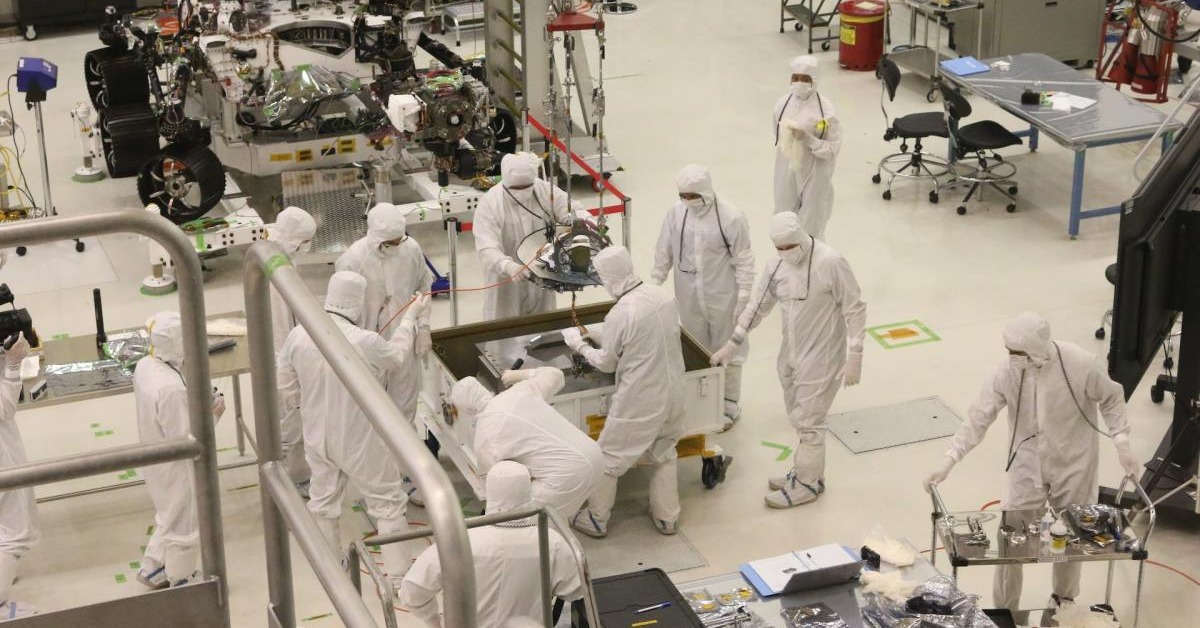
How Much Will You Make With a PhD in Business Analytics?
A PhD in Business Analytics prepares you for a career [...]

Logistics managers don’t get enough credit for their role in supply chain management (SCM). The job description seems simple enough: logistics managers oversee the movement of materials and finished goods in a supply chain. But think about how complicated that can be. Everything in the supply chain costs money, and there are so many ways a company can burn through a logistics budget.
For instance: if there’s an oversupply of raw materials or inventory, a company must pay to warehouse those supplies. If there’s an undersupply, manufacturing delays will reduce sales. If a company chooses the wrong transport company, costs can skyrocket. The same happens if they choose the wrong suppliers. And if products don’t make it to the packaging facility on time, orders can’t be fulfilled, and retailers and channel partners cancel their contracts.
It’s not hyperbole to suggest that logistics costs can make or break a company. Getting parts and finished products where they need to go when they need to get there is a vital part of supply chain management. It’s not as easy as expediting everything. Logistics managers have to find the most efficient and cost-effective ways to move materials and goods and to find the optimal balance between supply and demand.
If all that sounds like a fascinating puzzle to solve, keep reading. In this article about how to become a logistics manager, we cover:
Logistics managers are supply chain professionals who oversee procurement, shipping, and operations related to supply chain management. Again, that seems simple enough. However, this role varies significantly from company to company and from industry to industry. There are logistics managers who are primarily responsible for transportation logistics and don’t have any duties related to procurement, inventory management, or supply chain operations. Other logistics managers handle everything from purchasing to warehousing to distribution.
Given that, it’s hard to anticipate what a logistics career will look like. To prepare to enter this field, learn as much as you can about all the responsibilities associated with this role. Logistics managers may handle some or all of the following duties:
Looking at the above list, you might wonder why it includes so many tasks related to supply chain management. Here’s why: People often talk about logistics as a component of SCM, forgetting that the supply chain is a complicated interconnected system. It’s not always easy or even possible to put the professionals who keep it running into clearly defined silos. Every company sets its own standards regarding what logistics managers do and the scope of the role. The takeaway is that you should be ready, willing, and able to do work commonly associated with supply chain management and operations management when you launch your logistics career.
| University and Program Name | Learn More |
|
Pepperdine University:
Online Master of Business Administration
|
|
|
Stevens Institute of Technology:
Online Master of Business Administration
|
|
|
Merrimack College:
Master of Science in Leadership
|
|
|
Merrimack College:
Master of Science in Management
|
|
|
The University of Tennessee:
Online Master of Business Administration
|
Successful logistics professionals have specific skills and traits in common. If your goal is to become a logistics manager, you should begin to develop these skills as early as possible.
You’ll need highly-developed problem-solving skills, analytical skills, communication skills, and math skills. You don’t need to become a data scientist to succeed in this role, but having an aptitude for statistics and data analysis is helpful since so much of logistics management is now data-driven. And finally, keen attention to detail will help you succeed in this role because supply chains are complicated. If you can see both the forest and the trees, you’ll be able to identify ways to reduce expenses, boost profits, and optimize logistics operations now and in the future.
You can technically advance into this role with a high school diploma or an associate’s degree. However, the road from dispatcher or associate logistician to logistics manager can be a long one. Chances are you’ll land a management position in logistics faster with a bachelor’s degree, and in fact, most logistics managers have bachelor’s or master’s degrees.
Because logistics and supply chain management are intertwined disciplines, the vast majority of bachelor’s degree- and master’s degree-level programs treat them as one. At the undergraduate level, you might earn a Bachelor of Science in Logistics and Supply Chain Management or Bachelor of Business Administration in Supply Chain Management and Logistics. You can also launch a logistics career with a Bachelor of Science in Operations Management or a Bachelor of Science in Business Analytics. Graduate degrees for logistics managers include the:
All logistics and supply chain operations degree programs cover topics like:
While pursuing your undergraduate and grad school years, take advantage of any and all internship opportunities—even if completing an internship isn’t a graduation requirement. Internships provide an excellent way to grow your professional network, and they represent a chance to learn a lot about logistics operations in the real world.
There are several colleges and universities that offer online degrees in supply chain management and logistics. You can earn a logistics bachelor’s degree online at:
There are also master’s-level online supply chain and logistics degree programs at:
If you have reservations about choosing an online degree program, know that most online programs cover the same ground and offer students the same opportunities as on-campus programs. As to what you should be looking for in an online supply chain management master’s program, the University of Tennessee’s Haslam College of Business sums it up this way:
Logistics managers aren’t legally required to hold professional certifications, but there are several good reasons to become certified. First, you may have an easier time finding work when you have one or more logistics certifications. You’ll also likely command more respect among the logistics specialists, logistics analysts, transportation specialists, and other supply chain and logistics professionals on your team. But most importantly, earning professional certifications may be one of the best ways to increase your earning potential in this role. According to an Association for Supply Chain Management (ASCM) Supply Chain Management and Career Survey Report, a logistics manager with a single professional certification can earn 18 percent more than their uncertified colleagues—and the more certifications they have, the more their salary will grow.
Top certifications for logistics managers include:
After you graduate from a supply chain and logistics bachelor’s program, you’ll probably spend a few years working in roles like:
From there, you might spend time working in other management-level roles in SCM before advancing to a logistics manager position. Logisticians are promoted into roles like:
Right now, logistics manager may be your dream job, but you can aim higher. There are higher-paid, more-senior roles in logistics management to look into, including logistical administrator, logistics director, vice president of logistics, and chief supply chain officer.
Advancing in logistics takes time and hard work, but there are steps you can take to boost your chances of landing a management role more quickly.
First, consider how you’re leveraging your network. If your professional network is small because your school doesn’t have an SCM or logistics alumni group, you can join associations like the Association for Supply Chain Management, Council of Supply Chain Management Professionals, and the Institute for Supply Management. Each of these organizations holds regular conferences, seminars, and other events where you can meet logistics professionals who may be able to help you find new opportunities.
Next, take an honest look at your skills and strengths. If there are logistics technologies and software applications you’re not comfortable using, look for online courses or tutorials. Get certified in one or more areas of supply chain management and logistics if you haven’t already. And look for opportunities to develop skills that are related to SCM, like cloud security, database administration, and operations management.
Finally, always be open to new opportunities. There isn’t a typical advancement path in logistics, and the more you know about SCM, the more likely it is you’ll be hired into a management position. That means a series of lateral moves can result in a promotion, so if you have a chance to transition into another area of logistics—like warehousing or operations—take it.
Every year, the Association for Supply Chain Management publishes its Supply Chain Management and Career Survey Report. In 2019, it found that the median salary for supply chain professionals, including logistics managers, was $80,000. That’s not too shabby, and it’s definitely better than PayScale’s published average, $65,000. Salary.com paints a prettier picture. According to that site, the average logistics manager salary is about $112,000, and the highest-earning 10 percent earn $135,000 or more.
How much you’ll make in this role will depend on factors like your location, the highest level of education you’ve completed, what industry you work in, whether you’re certified, and how much professional experience you bring to the table. In general, though, the average logistics manager salary is a lot higher than the national average for all jobs.
The answer is yes, though this isn’t one of those roles that are going unfilled on a large scale. The US Bureau of Labor Statistics predicts that jobs for logisticians at all levels will grow by about five percent in the next ten years, which is the approximate growth rate for all occupations. That said, growth is growth, and as global supply chains become increasingly intertwined, the demand for logistics managers will likely rise. Changing consumer expectations may also lead to an increased demand for logistics professionals. Without skilled logistics managers, there would be no two-day Amazon Prime deliveries.
“Amid this changing business landscape, specialized workers in supply chain and logistics are becoming more valuable than ever,” says Tisha Danehl, vice president of Ajilon, a professional staffing agency serving the supply chain and logistics industries. This demand may be why the average logistics manager salary is going up. According to Logistics Management’s 2019 Salary Survey, 62 percent of professionals surveyed said their salary increased over the prior 12 months, and salaries have increased steadily since 2015.
This is all good news for anyone looking into how to become a logistics manager. Add to that the relatively low bar for entry when it comes to this role, and you have the makings of a stable, lucrative, and rewarding career.
(Last Updated on February 26, 2024)
Questions or feedback? Email editor@noodle.com

A PhD in Business Analytics prepares you for a career [...]

Operations research mines and interprets data to devise improvements in [...]

Channel marketers across the board earn good money. There are [...]

Lean Six Sigma approaches minimize error while maximizing capacity. Waste [...]

A Master of Science in Industrial Engineering preps graduate students [...]
Categorized as: Business Administration, Supply Chain Management, Business & Management